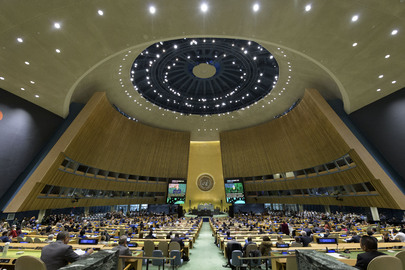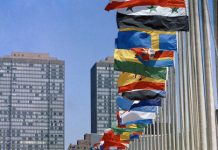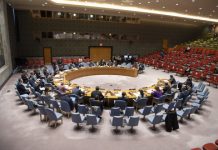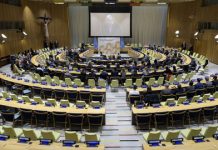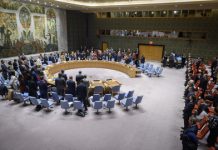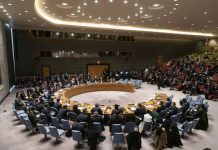UN aid coordination office, OCHA, reported that the cross-border operation from Türkiye into the northwest is running without impediments.
On Tuesday, 21 trucks carrying 500 metric tonnes of food – enough for 175,000 people – from the UN World Food Programme (WFP) crossed into Idlib through the Bab Al-Hawa border crossing.
Cholera campaign in the northeast
In northeast Syria, cholera vaccination is ongoing in Al-Hol camp in Al-Hasakeh, with the support of the World Health Organization (WHO) and the UN Children’s Fund (UNICEF).
The development is part of a 10-day campaign that began on Saturday.
Meanwhile, in the south, the UN refugee agency, UNHCR, in collaboration with the Syrian Arab Red Crescent, is working to provide essential non-food items to displaced families in need.
Child protection services
OCHA said that in Aleppo, child protection services have resumed, with 26 fixed centres and 12 mobile teams active in urban and rural areas.
Furthermore, over the past two weeks, WHO delivered 2.5 tonnes of emergency kits, IV fluids and medical supplies to Aleppo University Hospital and Al Razi Hospital.
The UN Development Programme (UNDP) also delivered 6,000 litres of fuel to Zahi Azraq Hospital.
Supply shortages, financial issues
OCHA warned, however, that supply shortages, financial liquidity issues and insecurity across the country remain key constraints for humanitarian response.
“Partners have warned that nutrition supplies for pregnant and lactating women are running out across the country and many referred cases were not treated,” the agency said.
Moreover, seven primary health centres in Hama had their insulin supplies stolen, while 18 primary health centres in Homs were unable to provide vaccination services due to damage, looting and staff shortages.
Vendors and field partners further report limitations on the amount of cash that can be withdrawn, thus affecting their ability to operate.
OCHA said some vendors are experiencing low stock levels due to curfews, incidents of violence, robbery and other security-related issues.
Returning home
In other developments, the UN refugee agency, UNHCR, reported that over 58,000 people have returned to Syria from neighbouring countries such as Lebanon, Jordan and Türkiye in the past three weeks.
Since the beginning of the year, an estimated 419,200 Syrian refugees have come back to their homeland.
Of this number, the majority, 25 per cent, returned to Ar-Raqqa, followed by Aleppo and Dar’a.
Source of original article: United Nations (news.un.org). Photo credit: UN. The content of this article does not necessarily reflect the views or opinion of Global Diaspora News (www.globaldiasporanews.com).
To submit your press release: (https://www.globaldiasporanews.com/pr).
To advertise on Global Diaspora News: (www.globaldiasporanews.com/ads).
Sign up to Global Diaspora News newsletter (https://www.globaldiasporanews.com/newsletter/) to start receiving updates and opportunities directly in your email inbox for free.


